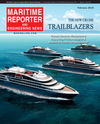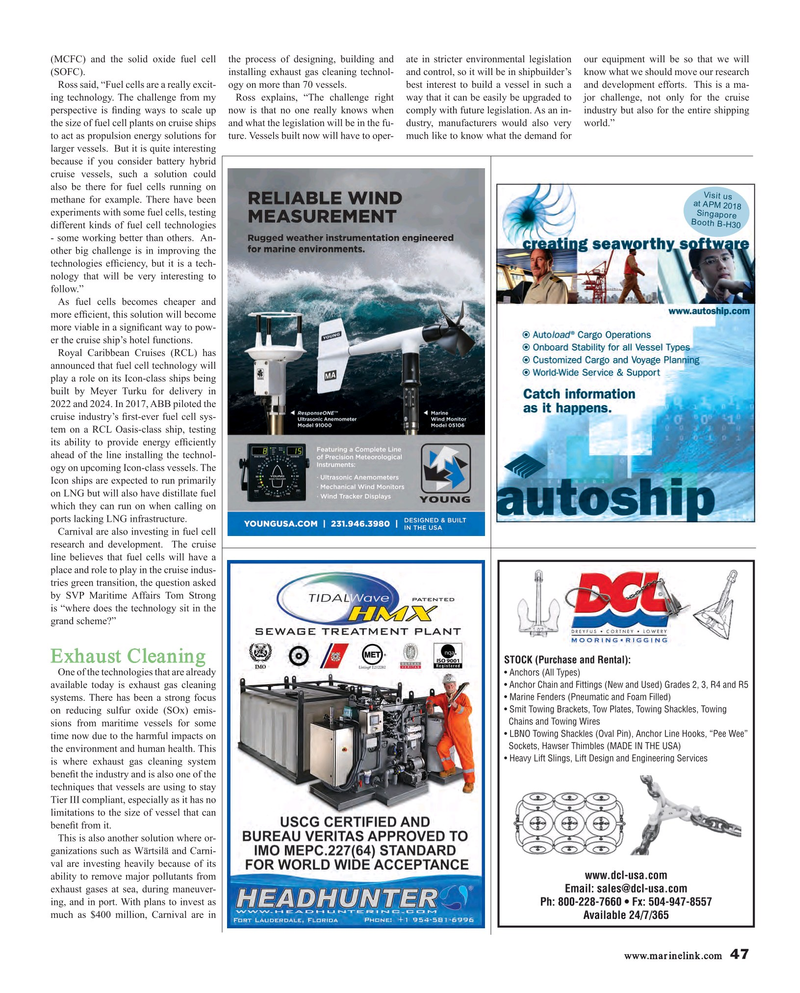
Page 47: of Maritime Reporter Magazine (February 2018)
Cruise Ship Annual
Read this page in Pdf, Flash or Html5 edition of February 2018 Maritime Reporter Magazine
(MCFC) and the solid oxide fuel cell the process of designing, building and ate in stricter environmental legislation our equipment will be so that we will (SOFC). installing exhaust gas cleaning technol- and control, so it will be in shipbuilder’s know what we should move our research
Ross said, “Fuel cells are a really excit- ogy on more than 70 vessels. best interest to build a vessel in such a and development efforts. This is a ma- ing technology. The challenge from my Ross explains, “The challenge right way that it can be easily be upgraded to jor challenge, not only for the cruise perspective is ? nding ways to scale up now is that no one really knows when comply with future legislation. As an in- industry but also for the entire shipping the size of fuel cell plants on cruise ships and what the legislation will be in the fu- dustry, manufacturers would also very world.” to act as propulsion energy solutions for ture. Vessels built now will have to oper- much like to know what the demand for larger vessels. But it is quite interesting because if you consider battery hybrid cruise vessels, such a solution could also be there for fuel cells running on
Visit us methane for example. There have been at APM 2018
Singapore experiments with some fuel cells, testing
Booth B-H30 different kinds of fuel cell technologies - some working better than others. An- other big challenge is in improving the technologies ef? ciency, but it is a tech- nology that will be very interesting to follow.”
As fuel cells becomes cheaper and more ef? cient, this solution will become more viable in a signi? cant way to pow- er the cruise ship’s hotel functions.
Royal Caribbean Cruises (RCL) has announced that fuel cell technology will play a role on its Icon-class ships being built by Meyer Turku for delivery in 2022 and 2024. In 2017, ABB piloted the cruise industry’s ? rst-ever fuel cell sys- tem on a RCL Oasis-class ship, testing its ability to provide energy ef? ciently ahead of the line installing the technol- ogy on upcoming Icon-class vessels. The
Icon ships are expected to run primarily on LNG but will also have distillate fuel which they can run on when calling on ports lacking LNG infrastructure.
Carnival are also investing in fuel cell research and development. The cruise line believes that fuel cells will have a place and role to play in the cruise indus- tries green transition, the question asked by SVP Maritime Affairs Tom Strong is “where does the technology sit in the grand scheme?”
Exhaust Cleaning
STOCK (Purchase and Rental):
One of the technologies that are already s

 46
46

 48
48
